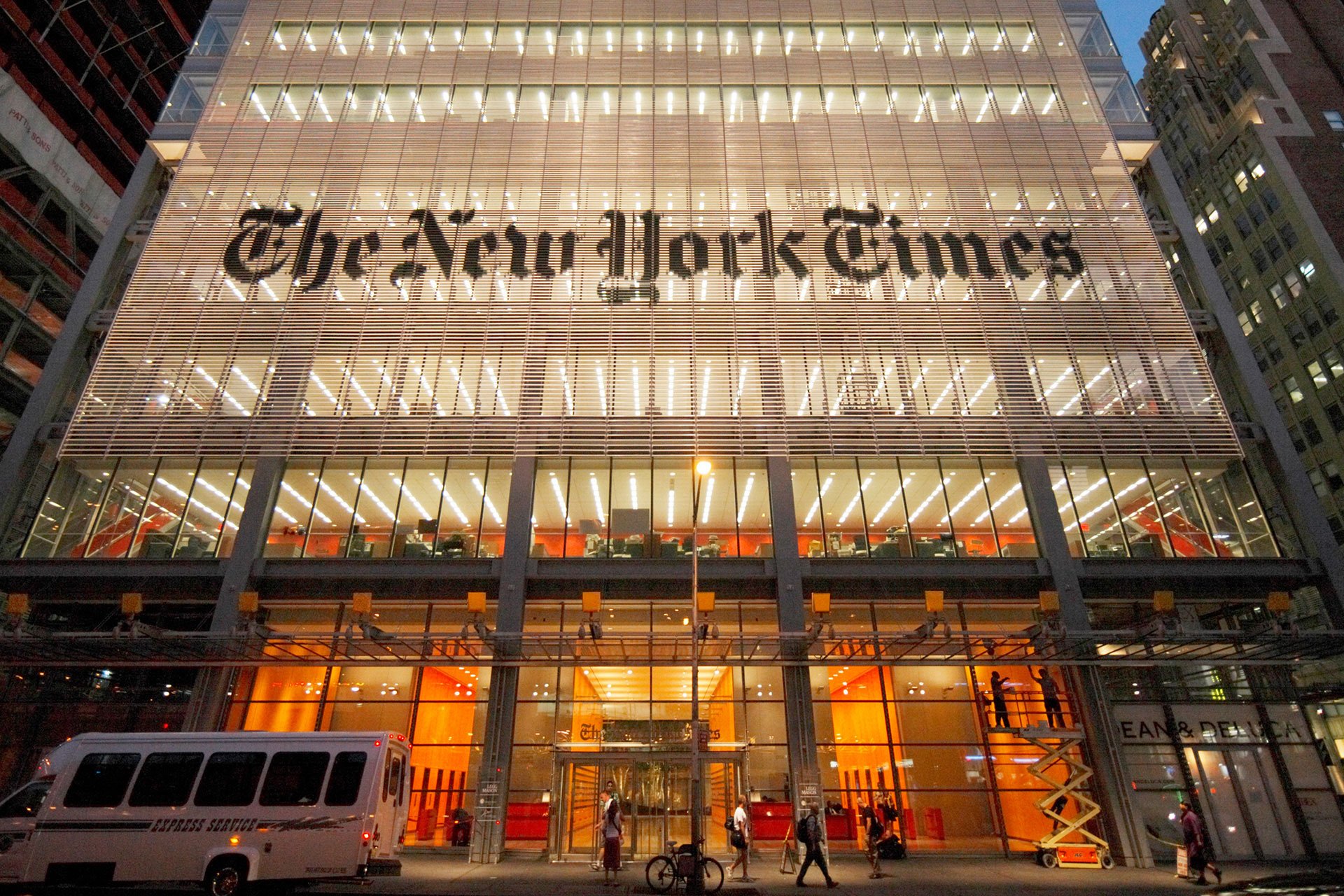The New York Times is under fire for reportedly planning a critical piece targeting the video-sharing platform Rumble and its content creators. The platform, which has gained prominence for hosting content that challenges mainstream narratives, is accused by the Times of promoting content and advertisements related to global crises and conflicts that allegedly diverge from traditional media coverage.
The controversy surfaced when Jake Pentland, the son of comedian Roseanne Barr, revealed on X (formerly Twitter) an email he received from New York Times journalist Stuart Thompson. In the email, Thompson inquired about content hosted on Rumble, including the Roseanne Barr Podcast, and its broader implications on public discourse. Pentland responded by accusing the Times of unfairly targeting independent platforms like Rumble while ignoring instances of misinformation from legacy media outlets. He highlighted what he saw as a double standard, where independent creators are scrutinized while traditional platforms escape accountability for their narratives.
Elon Musk, the CEO of X, added to the conversation by suggesting that traditional media outlets like the New York Times see platforms such as Rumble and X as competitors in the battle for advertising revenue. Musk implied that the mainstream media’s attempts to discredit these platforms stem from economic interests rather than journalistic integrity. Musk urged audiences to critically evaluate these dynamics and recognize the broader implications of media competition on public discourse.
Rumble, founded in 2013, has become a prominent space for conservative and libertarian voices, as well as for individuals who feel marginalized or censored on mainstream platforms like YouTube. The platform emphasizes its commitment to free speech and has positioned itself as an alternative to what it describes as increasingly restrictive content moderation policies on other social media sites. Rumble’s rising influence was solidified when it became the exclusive streaming partner for the Republican National Committee’s primary debates, further cementing its role as a hub for politically conservative content.
The ongoing scrutiny of Rumble by major media outlets highlights the growing tension between traditional media and alternative platforms. As public trust in mainstream media declines, many turn to platforms like Rumble for what they perceive to be unfiltered or uncensored content. However, this shift has also sparked debates over the role of these platforms in spreading misinformation and the responsibility they bear for content moderation.
The situation underscores a broader clash within the media landscape, as legacy outlets attempt to maintain their influence in the face of rising competition from decentralized platforms. Critics argue that the New York Times’ alleged targeting of Rumble reflects a larger struggle over control of the narrative in an increasingly fragmented media environment.
Key sources for further information include:
- Failing New York Times EXPOSED Targeting Rumble and Rumble Creators With BS Hit Piece
- Media Matters: Media outlets are rarely reporting the crucial detail that Rumble — the exclusive streaming partner for GOP primary debates — is a haven for extremism
- Rumble’s Growing Influence and Its Role in Conservative Media



